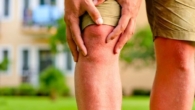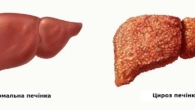
5 body odors that doctors advise not to ignore
0
Studies say some diseases can cause specific body odors.
Here are five common body odors that, according to medical professionals, can signal a serious problem and should not be ignored.
“Fruit” breath . One of the dangerous complications of diabetes is a condition called diabetic ketoacidosis, which occurs when the body runs out of insulin and blood sugar levels rise sharply. This disorder is more common in people with type 1 diabetes than in people with type 2 diabetes.
Elevated sugar levels mean that insulin is not delivering that sugar to the cells that would process it, giving the body the energy it needs to function normally. Without receiving this energy, the body begins to break down fatty acids for fuel, and this contributes to the accumulation of the acidic chemicals ketones in the blood. One of them is acetone, which gives the breath a fruity aroma.
Diabetic ketoacidosis is often combined with other symptoms of diabetes, such as fatigue, blurred vision, unexplained weight loss, and dry mouth. If you notice fruity breath along with any of these symptoms, see your doctor – if left untreated, this disorder can lead to life-threatening conditions.
Strong foot odor.
Strong foot odor.
strong>The cause of persistent “aroma” emanating from the feet can be a fungal infection, and it should not be ignored. If you notice dry skin around the toes, redness and blisters, mycosis is possible. Foot odor is caused by a combination of bacteria and fungi that break down the skin and affect the membranes of the toes.
“If you accidentally scratch the affected leg and then touch another part of the body, the fungus can spread to other parts of the body, for example penetrate the groin or armpit. It can also cause the appearance of a particularly unpleasant odor in these areas,” says the dermatologist-cosmetologist.
The stool smells bad.An increase in the unpleasant smell of feces can be a symptom of intolerance to lactose – the sugar contained in dairy products. It occurs because the small intestine does not produce enough of the enzyme lactase, which allows the digestion of lactose. Statistically, about 65 percent of adults experience dairy indigestion at some point. Their reactions can vary and include painful stomach cramps, nausea, diarrhea, bloating, increased flatulence, and worsening of the smell of gas and stools.
If your gas or feces start to smell particularly strong after drinking just a little milk, you should see a doctor, get checked for Crohn's disease, or other bowel problems.
Increased urine odor.< /strong> Doctors warn: urinary tract infections (UTIs) can lead to a sharp, almost chemical smell of urine – this is the result of the reproduction of bacteria, most often Escherichia coli, capable of penetrating the bladder.
UTIs are more common in women than in men, which is related to the peculiarities of physiology.
Bad breath in the morning. Doctors also advise not to ignore the extremely unpleasant smell of morning breath after waking up. A similar symptom, according to them, can be undetected sleep apnea – a disorder characterized by cessation of breathing during sleep. Apnea contributes to excessive snoring, forcing a person to breathe through the mouth, which creates a problem of drying out of the mucous membranes – it also causes an increase in bad breath, because it allows bacteria that emit sulfur gas to multiply more easily.









Leave a Reply